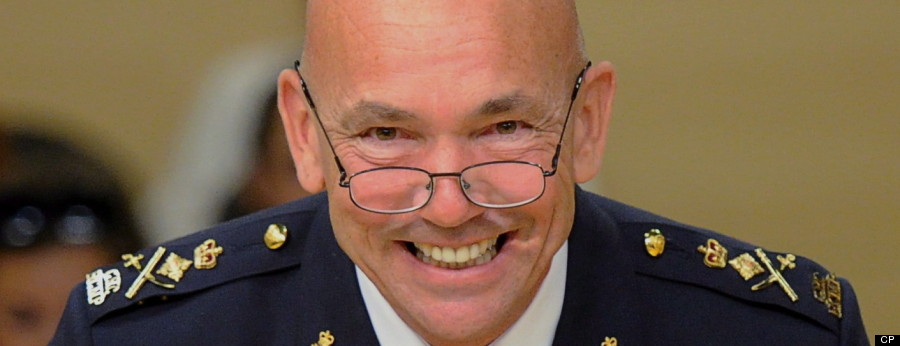The Mounted Police Professional Association announced a legal aid program on Wednesday to cover the costs of legal advice and lawyers for accused officers.
The group, which represents almost 2,000 civilian and regular officers, said Bill C-42, which is awaiting royal assent to become law, gives the RCMP complaints body greater powers to discipline and dismiss officers without any independent oversight.
"He will be able to fire people for what he determines to be unsatisfactory working habits," Rob Creasser, the association spokesman, said. "Ultimately all decisions will rest with him and his delegates."
Rae Banwarie, national president of the association, said the new legal aid program would protect members from "unscrupulous and unethical managers who continue to bully and intimidate."
Those who may need to dispute dismissals or demotions, or who may need a lawyer in criminal or highway traffic prosecutions and police conduct investigations, could also access aid.
"We have to do something to protect our people and our membership across the country and provide them a process where it's fair, it's equitable and they have some recourse," Banwarie said.
The program, funded by association members, would pay the costs associated with disciplinary hearings and employment grievances.
Banwarie, an RCMP constable, said the legislation also violates Mounties' charter rights because it forces officers to give incriminating evidence against themselves — something that other Canadian citizens would never have to do.
"I am a Canadian citizen first, an RCMP officer second," he said. "The same bill of rights that applies to every Canadian citizen applies to me first and as part of that, I have the right not to say or do anything that's going to incriminate me in any process."
That issue has surfaced at the perjury trial of an RCMP officer involved in the death of Robert Dziekanski at Vancouver airport. Const. Bill Bentley is accused of lying at the public inquiry into Dziekanski's death.
Banwarie also said the legislation gives the RCMP the ability to apply for a warrant to search members' homes for code-of-conduct investigations, without their knowledge.
Bill C-42, which amends the RCMP Act, was tabled last June, several months after the force was hit with a yet-to-be certified class-action lawsuit over alleged discrimination and harassment of female members.
In recent years, the RCMP has been rocked by other high-profile harassment accusations by both current and former members.
The government has argued the legislation would allow the force to quickly deal with grievances that fester for years.
But Vancouver lawyer Marjorie Brown, who has represented other police unions as well as independent RCMP officers, said she isn't convinced the legislation will fix the force's grievance and harassment procedures.
Brown said the problem lies partly with the fact that RCMP members do not have access to the independent, timely arbitration processes available to unionized police forces.
"The problems are not statutory in nature, but they lie in the administration of these procedures," she said. "They lie with the delay that we find in the processing of the grievances, and they lie in not having access to an independent process that provides for procedural fairness."
Banwarie claims that if the RCMP was allowed the right to unionize, many of the controversies currently plaguing the force would not see the light of day.
"We've got over 152 police agencies (in Canada) that are unionized, and I can't think for one minute that they've all got it wrong, and we've got it right," he said.
"It's because of the processes we have that are failing the members."
Original Article
Source: huffingtonpost.ca
Author: Vivian Luk

No comments:
Post a Comment